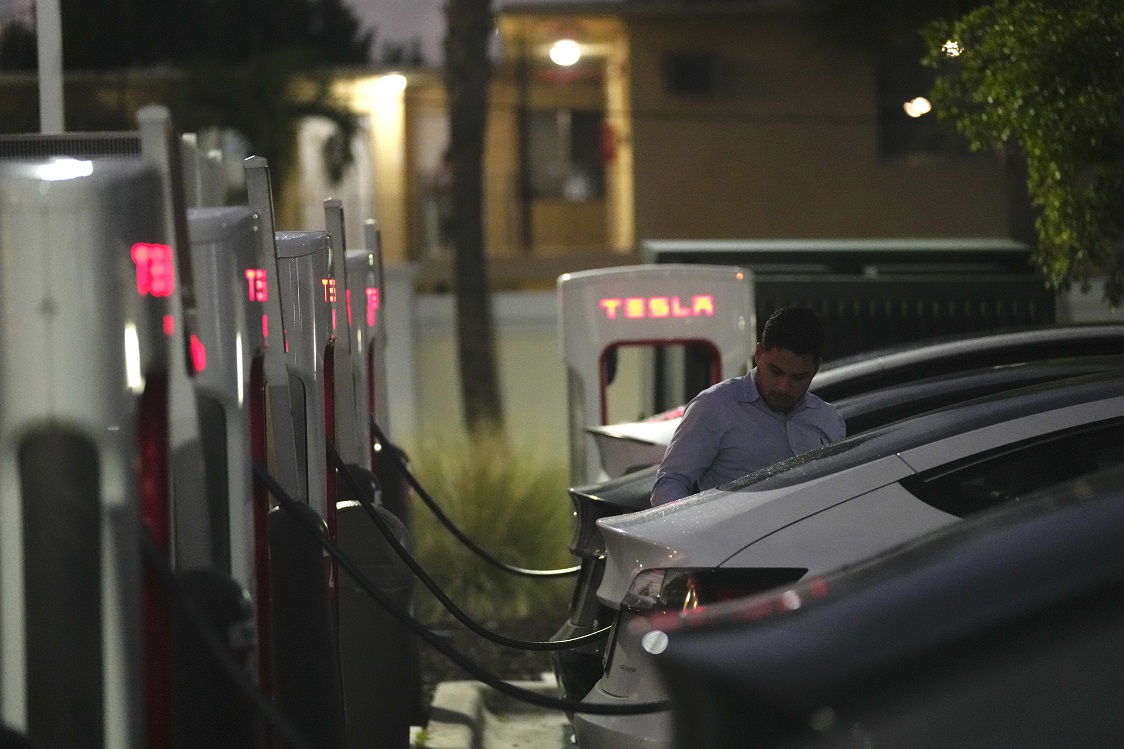The European Parliament (EP) requires that by 2026 there should be at least one charging station for electric cars every 60 kilometers on all major road routes in the EU. In the Czech Republic, however, this will plan will probably fail, according to the Czech Ministry of Transport.
According to the MEPs’ proposal, which should be enacted between 2021 and 2026, each station should also have an output power of at least 300 kilowatts and include at least one charger with an individual output of 150 kilowatts.
Currently, chargers with a power of 50 kilowatts are most often used at Czech stations.
The proposed rule, approved by the European Parliament in late October, is part of the Fit for 55 climate package, which aims to achieve a 55 percent reduction in greenhouse gas emissions. The regulation now heads to the European Council.
Construction is not worth it
Czechia already is, in terms of the ratio of electric cars to one charging station, in a flattering eighth place among EU states. However, the Czech Ministry of Transport and the main potential operators of chargers consider the European Parliament’s requirement to be difficult to fulfill even despite around 5 billion korunas (€205 million) in subsidies from the EU to support construction.
“Like most other member states, we consider the European Parliament’s proposal to be completely unrealistic,” František Jemelka, spokesperson for the Ministry of Transport, told Právo daily. The original proposal of the European Commission was already very complicated from the point of view of the Ministry, mainly because it is not at all possible to ensure the construction of chargers with such a capacity in the given period, especially when it comes to capacity from Czechia’s energy network.
“Given that the majority of member states have a similar position to the Czech Republic, we do not expect that the European Parliament will succeed in enforcing this request during the negotiations with the Council, which began during our presidency but will continue under the next Swedish presidency,” added Jemelka.
Even the current operators of public charging stations think that it would be difficult to achieve the goal requested by the European Parliament.
“Achieving this goal will certainly not be easy. Indeed, a certain core of a charging infrastructure that can be built on already exists, but in this case, we are talking about hundreds of kilowatts to units of megawatts of charging power in one location, which represents a complex and particularly time-consuming solution,” said Martin Schreier from the ČEZ Group, which operates around 470 public charging stations throughout the Czech Republic.
According to him, the problem lies primarily in ensuring the necessary electrical input.
“At the same time, the construction of the stations itself is not yet commercially profitable and is only possible with the help of investment subsidies, such as CEF programs or funds distributed from the Transport Program,” added Schreier.
“Currently, the construction of stations is not profitable, and it will not be in the next few years either. The reason is the low number of electric cars in our market,” confirms Martin Klíma, CEO of E.ON Drive Infrastructure.
“Under the current conditions for building permits and the possibility of acquiring land, the stated goal is very difficult to achieve. According to our belief, it is necessary to revise the set rules,” says PRE’s spokesperson Karel Hanzelka.
According to data from the Ministry of Transport, there are currently more than 13,000 electric cars in the Czech Republic, which use over 2,600 chargers. The national clean mobility action plan assumes that between 19,000 and 35,000 charging points should be built by 2030.





